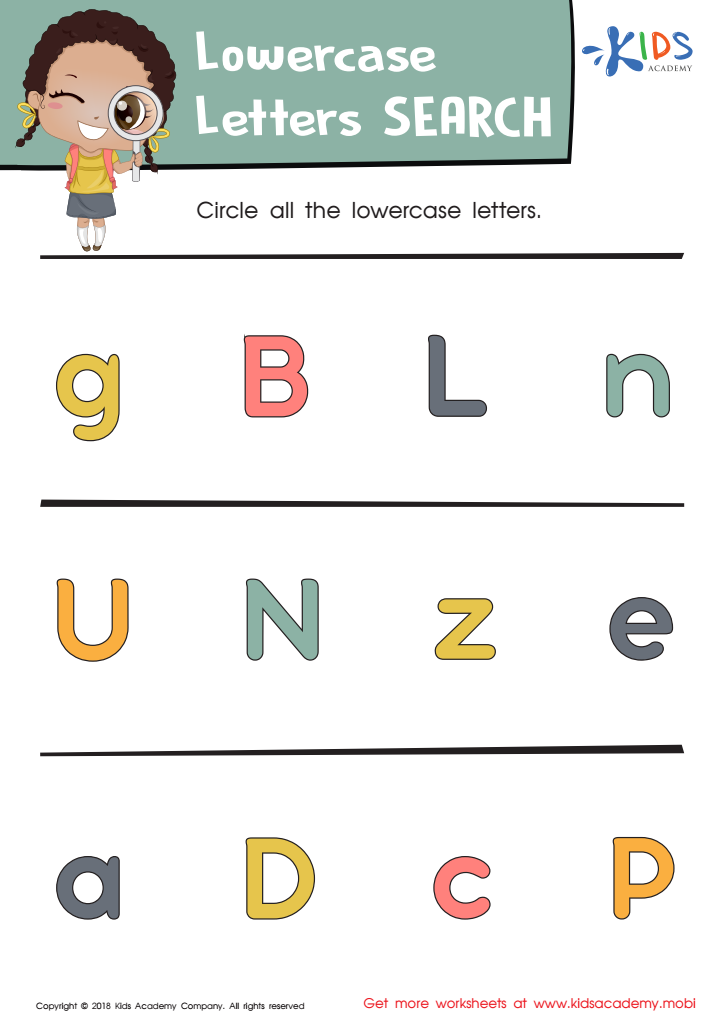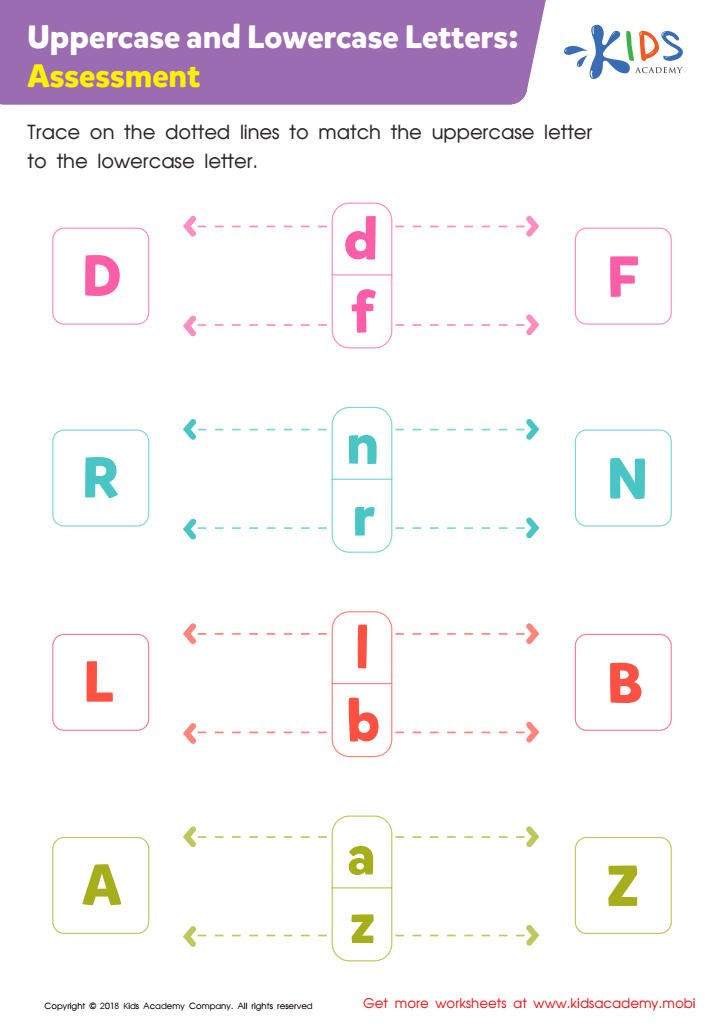Lowercase/Small Letters worksheets activities for 6-Year-Olds
2 filtered results
-
From - To


Lowercase Letters Search: Assessment Worksheet


Uppercase and Lowercase Letters: Assessment Worksheet
Lowercase/Small Letters worksheets activities are invaluable tools in the foundational stages of literacy education. These engaging and interactive activities serve multiple purposes in facilitating young learners' understanding and mastery of the alphabet, particularly focusing on the lowercase letters, which are prevalent in reading and writing. Here’s why these worksheets are so beneficial:
### Enhances Letter Recognition
Lowercase/Small Letters worksheets activities provide a structured approach to identifying and differentiating between the small letters. Since lowercase letters make up the majority of any written text, it's essential for children to recognize and familiarize themselves with these forms. Activities such as matching, tracing, and identifying letters help solidify this crucial skill in an enjoyable manner.
### Improves Fine Motor Skills
The act of tracing or writing letters as part of these worksheets is instrumental in developing fine motor skills. Children learn to control their hand movements, improving their handwriting and penmanship over time. This skill is not only vital for writing but also for other daily tasks.
### Promotes Phonemic Awareness
Engaging with Lowercase/Small Letters worksheets activities often incorporates learning the sounds associated with each letter. This exposure is critical for developing phonemic awareness, a foundational skill for reading. By associating letters with sounds, children start to decode words, paving the way for fluent reading and comprehension.
### Builds Confidence
The structured nature of these worksheets allows children to progress at their own pace, celebrating each small victory. The sense of achievement upon completing a worksheet fosters self-confidence and encourages a positive attitude toward learning.
### Encourages Independent Learning
These activities are designed in a way that children can often undertake them with minimal supervision, promoting independent learning. This autonomy boosts their problem-solving skills and instills a sense of responsibility for their educational journey.
In conclusion, Lowercase/Small Letters worksheets activities are a cornerstone in early literacy education. They not only aid in the mastery of the alphabet but also develop crucial cognitive and motor skills, setting a solid foundation for future learning endeavors.

 Assign to the classroom
Assign to the classroom


.jpg)









